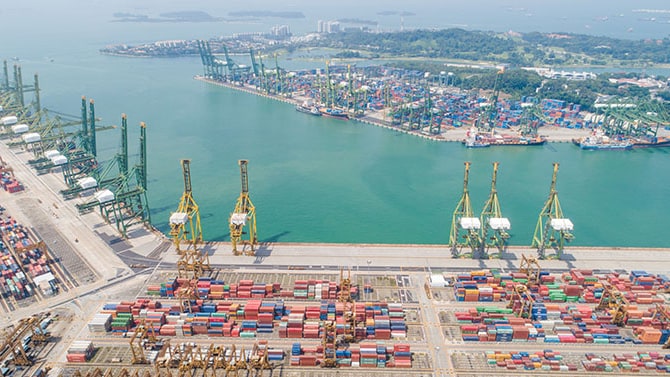{{item.title}}
{{item.text}}

{{item.title}}
{{item.text}}
The flow of goods across international borders is a complex process, with a lot of different compliance requirements in a continuously changing landscape of rules and regulations. Companies engaged in international trade must navigate a labyrinth of customs laws, regulatory requirements and trade agreements. This is where technology can assist in automating and streamlining your customs compliance as well as assist a company in getting in control and utilising the opportunities customs legislation and trade agreements offer. PwC can help you navigate the technology landscape and work with you to optimise your processes.
The integration of technology in customs and international trade administration is not just a matter of keeping pace with the digital age; it is a strategic imperative for companies looking to succeed in the global marketplace. By leveraging technological tools, businesses can improve compliance, efficiency, risk management, and utilise opportunities. As trade volumes grow and customs and trade legislation increase, the role of technology will only grow in importance to enable companies to be compliant with everything that is expected of them. Where can we assist
Compliance with international trade regulations is a non-negotiable aspect of global business operations. Technological solutions such as customs software, data analytics/reporting and visualisation enable companies to streamline their compliance processes as well as getting in control of their customs activities.
Companies can apply and use technology solutions to ensure compliance in the following areas:
Customs declarations
Special customs procedures such as Customs Warehousing and Inward Processing
Export controls, sanctions and embargoes (trade compliance)
Sustainability regulations such as CBAM
The customs and international trade landscape is constantly changing with variables such as fluctuating tariffs, changing regulations, and political instability. Technology aids through the capability of including standard controls in systems as well as the possibility to generate reporting. Data analytics and visualisation applied within the reporting, offers data-driven insights that will help a company determine the best course of action to mitigate any potential risks. Companies as such can use these tools to assess potential risks and make informed decisions to mitigate them.
Customs legislation as well as trade agreements also offer opportunities. Through customs procedures that can be applied (like for example Inward Processing and End-Use) or preferential (i.e. zero or lower) import duty rates to be claimed upon import. To utilise these opportunities often a complex and detailed administration needs to be kept complying with all the requirements of the authorities. In this respect the use of technology has become a must, especially for companies with large trading volumes and a variety of goods.



Suzanne Bras
Senior Manager Customs & International Trade, PwC Netherlands
Tel: +31 (0)65 395 86 76

